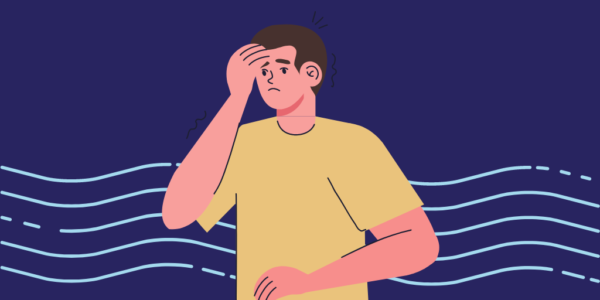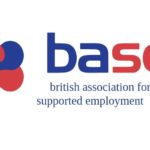Youth friendly employers and managers can support young staff who find it difficult to disclose mental health issues at work with this mental health first aid guide.
Mental health in the workplace has been in the spotlight in recent years. Thanks to a growing awareness of the mental health struggles that so many people face, the stigma around mental health is lessening and it is becoming a more widely talked-about subject.
We believe that this is a wonderful step forward, particularly for young people. According to the Mental Health Foundation, 75% of mental health problems will be established by the age of 24. This means that, as well as dealing with tremendous life changes such as leaving education and moving into the world of work, young people have a high likelihood of struggling with their mental health at some point.
It can be difficult for a young person to disclose a mental health issue at work, but a supportive workplace can make all the difference. If you are a manager of young employees, read on to learn all about mental health first aid and how it can help you to support your team members in staying happy and healthy in the workplace and beyond.
Should Managers Be Trained in Mental Health?
As a manager, you are (probably) not a trained mental health professional and it is not your job to be. However, this doesn’t mean there is nothing you can do. In fact, you can play a key role in supporting your young employees who may be dealing with mental health struggles. This is why we believe mental health training for managers is absolutely vital.
In September 2022, the World Health Organisation (WHO) recommended that managers receive training to address the global issue of poor mental health in the workplace.
What Should Managers Do for Mental Health?
Even though you are not a trained mental health professional, there are still lots of things you can do to support employees with mental health challenges and to foster a culture of strong mental health support in your workplace.
Managers need to become researched and informed
The first step is getting educated. If you’re reading this article, you’ve already taken the first step. Organisations such as the Mental Health Foundation, Mind, and the NHS are other great places to find compassionate, evidence-based information and to start learning more about mental health.
Managers need to be open to making reasonable adjustments (e.g. flexible working)
Another thing that’s important to do is to make reasonable adjustments for employees who are struggling with their mental health, whether short-term or long-term. This might include things like flexible working arrangements, a later start time, access to a private space to rest and decompress if necessary, a reduced workload, or the ability to work from home on some days. What adjustments will be most suitable is something you will need to negotiate with each individual on a case-by-case basis.
Organisations need to actively consider Employee Assistance Programmes (EAPs)
If possible, your company or organisation should offer access to professional support for employees affected by mental health issues. One of the best ways to do this is through an Employee Assistance Programme (EAP), which allows employees to access free and confidential support from appropriately trained professionals at any time.
Managers can ensure at least one staff member is a trained mental health first aider
Want to go a step further? That’s where becoming a mental health first aider comes in.
What is a Mental Health First Aider?
First aid, as the name implies, refers to giving immediate help and support to a person who is sick or injured. You may even have had first aid training at work. However, traditional first aid focuses on physical illnesses or injuries.
The goal of mental health first aid, much like its physical counterpart, is to provide a first point of contact or means of support for a person who is struggling with their mental health.
Workplace mental health first aiders can do the following:
- Provide a non-judgemental listening ear
- signpost people to the appropriate support and services for them both in and outside of the workplace
- help individuals to advocate for themselves at work when necessary.
They can also help to change the conversation about mental health at work, reducing stigma and creating a more open and accepting culture.
It is important to state that a mental health first aider is not a doctor, counsellor, or psychotherapist, and is not qualified to make a diagnosis of a mental health condition or to prescribe medication. Mental health first aiders are not a replacement for professional support, but a first line of defence.
Do You Need a Qualification to Be a Mental Health First Aider?
There is currently no legal requirement to have mental health first aiders in your workplace. This may change in the future, as a Bill was introduced in Parliament by Dean Russell, MP, in March of this year which–if passed–would require every workplace to have a trained mental health first aider.
The role of a mental health first aider is not governed by any specific legislation and no particular qualification is required. However, it is strongly recommended that your mental health first aiders are given formal training by experts, which could include taking a qualification. This will ensure that they are effective in the role and do not inadvertently harm instead of helping.
What Mental Health First Aid Courses and Training Are Available for Managers in the UK?
There are numerous mental health first aid training courses available in the UK, offered by various organisations. These include:
- Courses from St John’s Ambulance, including a FutureQuals Level 3 Award in Mental Health: Workplace First Aider and a Level 2 Award in Mental Health: Workplace First Responder. These courses take 2 days and 1 day, respectively.
- Courses from The UK Training, including a Level 2 Award in Introduction to First Aid for Mental Health and a Level 3 Award in Understanding Mental Health in the Workplace for Managers (both 2 days in length.)
- Various in-person and online courses from Mental Health First Aid England
- First Aid Awards (FAA) accredited training at three different levels from Lamp Advocacy, a Leicester-based mental health organisation.
- One-day and two-day courses from Mind Matters Training, including specialist courses in youth mental health first aid.
- …and many more!
When you consider a mental health first aid training programme, take the time to ask questions about the provider, instructor, and any accreditation that comes with the course. This will ensure you are getting the quality, expert-led training you need to support your employees and build a happier, healthier working culture.





